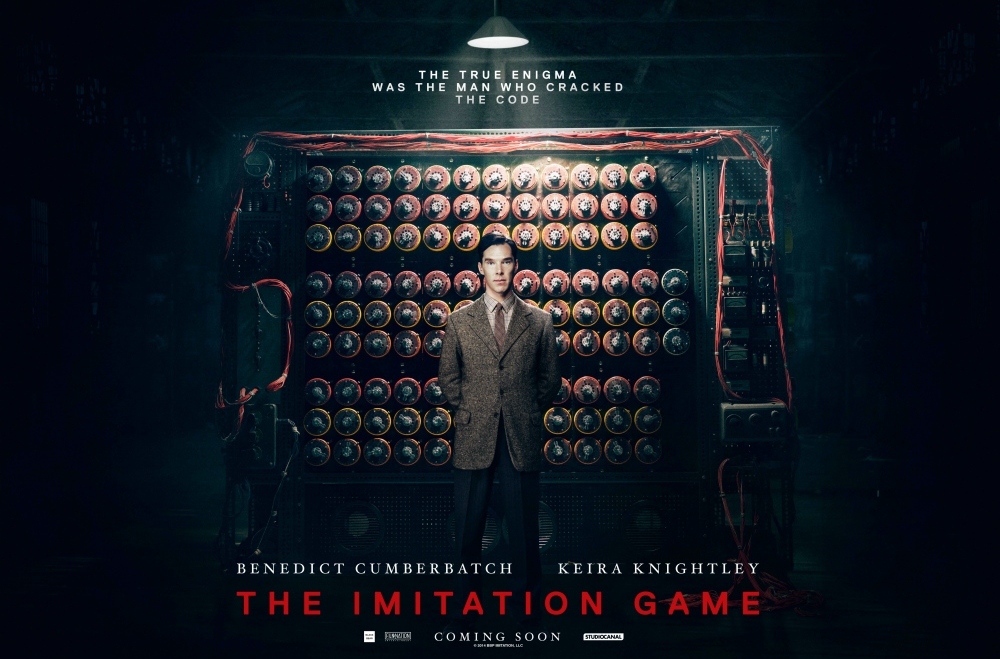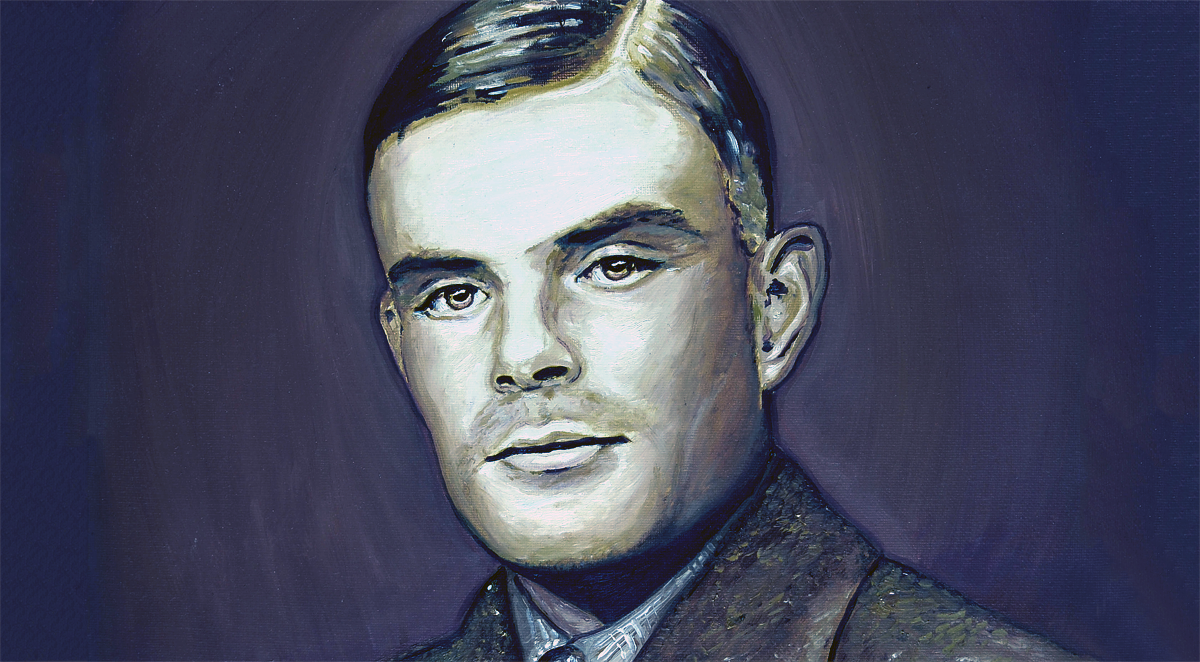Tag Archives: Alan Turing
My review of The Imitation Game

Considering my fascination with the history of computing, it took me much longer to see this movie than I had expected. I suspect if you haven’t seen it by now you probably don’t plan on doing so, however I’m going to provide my first ever movie review for this site.
The Imitation Game is the story of Alan Turing, the brilliant British mathematician who is considered the father of computer science and was responsible for developing the Bombe, a gigantic machine whose sole purpose was to crack the Enigma code used by the Nazis in World War II.
The Enigma codes were generated anew on a daily basis using an Enigma machine, and although I hardly wish to credit the Nazis with anything, the concept was brilliant. By adjusting the codes daily, even if the day’s code was cracked, that knowledge would be useless the following day. It would require something quite advanced in order to break an ever changing code, especially in the 1940s.
Google raises Turing Award prize to $1 million

So much comes together with this announcement. The Turing Award, created by the Association for Computing Machinery (of which I’m a member, full disclosure) is the equivalent of the Nobel Prize for computer science. Founded in 1966 and valued at $250,000, it has been awarded for advancements and developments in all areas of computer science, from programming achievements to hardware to OS design and development, although it tends to skew towards methodologies and programming, which is understandable; it is a computer science award after all.
Previously jointly-funded by Intel and Google at a value of $250,000, Google has taken over the award funding after Intel ceased involvement and raised the value to $1 million. Considering the impact technology and computer science have in our lives (and the Alan Turing-based Google Doodle they created for his 100th birthday; do those numbers look familiar?), I think it’s about time, and it puts the Turing Award in league with the Nobel Prize, although the financial award for that fluctuates.
The Turing Test defeated! Well, maybe.
Anyone who has been in my class (in fact I’m posting this because I received a few emails from you about this story) knows the acronym CAPTCHA; it stands for Completely Automated Public Turing Test to tell Computers and Humans Apart. It is also one of the main methods for ensuring that someone entering or registering for a website is actually a human. It looks like one of these guys:
 There are many variations on this, including picture CAPTCHAs, animated CAPTCHAs, I even found this dice-based CAPTCHA, which is my favorite one of all.
There are many variations on this, including picture CAPTCHAs, animated CAPTCHAs, I even found this dice-based CAPTCHA, which is my favorite one of all.
The big question that always comes up about a CAPTCHA isn’t the thing itself, but rather what is meant by “Turing Test?” At its most basic, the test asks whether a machine can have a text-based conversation with a human, and convince the human that they are having a conversation with another person. If the machine can do that, it has passed the Turing Test. It is named after the tragic yet pioneering scholar and mathematician Alan Turing who postulated the concept of thinking machines.
These Turing tests have been going on for decades – one of the first conversational programs was Eliza (a version of which you can interact with here), followed by many more – now we have things like Siri and Cortana, we had visions of this in movies all the way back in 1968 with the landmark film 2001: A Space Odyssey and more recently Her, with a myriad in-between in which the lines between machines and humans are being blurred. However, no one mistakes those constructs for a human. Remember, in the Turing Test, the human can’t see who they’re conversing with.
Now, however, there are news reports all over the place about a machine from the University of Reading, specifically a supercomputer masquerading as 13 year-old boy Eugene Goostman, finally passing the Turing Test. I believe it has already been passed many times, but this for some reason is more official. Don’t be fooled just yet, however, as there is a massive amount of debate as to whether or not the results are valid. The arguments are two-fold: First, is it really artificail intelligence? I believe this is a non-starter as the Turing Test isn’t meant to measure that in the first place, it’s a question beyond the scope of the test. The second argument I’ve heard, however, is more valid: Because the machine was masquerading as a 13 year-old boy and not an adult, it didn’t have to present the same level of “intelligence” that other systems attempt to convey, therefore making its task easier. I think that’s a valid point, and we’ll have to see how the debate plays out.
If you would like to give Eugene, that is the software that portends to be Eugene, a try, you can tinker with an earlier version of it here. Have creepy fun!





